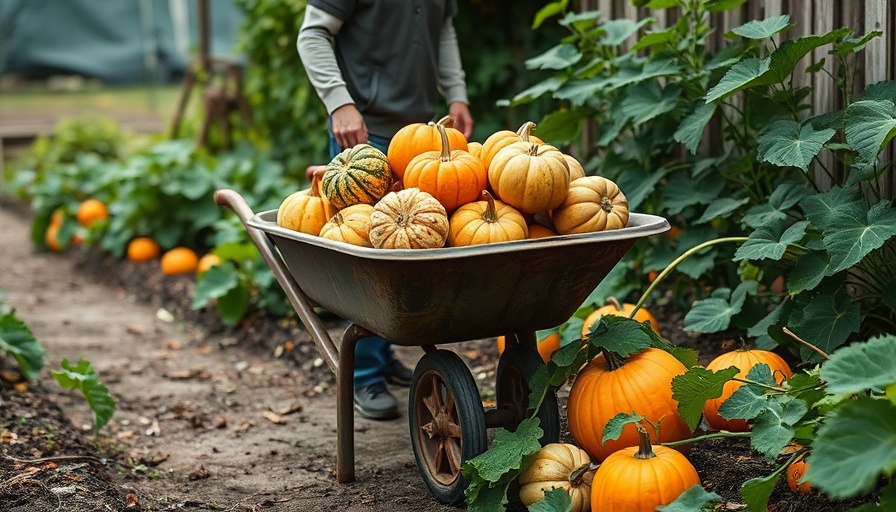
Challenging the Notion of Organic Sufficiency
In a world where food quality seems to be overshadowed by sheer quantity, it's crucial to reflect on the implications of what we eat. Many believe that organic foods are the ultimate solution for a healthy and balanced diet, but is this really enough? The ongoing discourse surrounding the insufficiency of nutrients in our modern diets prompts an exploration into not just what is on our plates but how it was cultivated.
Understanding Organic Foods
Organic farming emphasizes the use of natural processes and materials, and as consumers, we often equate organic labeling with superior nutrition. However, despite this perception, recent studies suggest that organic produce can still lack essential vitamins and minerals, depending on several factors including soil health, farming practices, and seasonal conditions. Just because something is labeled “organic” doesn’t always guarantee that it is nutrient-dense.
The Reality of Nutritional Deficiencies
As highlighted in numerous studies, including insights from experts in nutrition, many people aren't meeting their daily recommended nutrients, even with a diet rich in organic options. For example, a present-day analysis indicates that modern agricultural practices—even within organic frameworks—can yield crops high in some nutrients but deficient in others. Specifically, many individuals find themselves lacking essential vitamins such as zinc, despite consuming what they believe to be nutrient-rich foods.
Supplementation and Its Role
To contend with these potential deficiencies, dietary supplements may become a necessary addition. A prevalent recommendation is that individuals consult with healthcare providers to identify any nutrient lags in their diets, particularly when adhering to an organic-based regime. Regular health screenings— including blood tests—can provide a clearer picture of one’s nutritional status and pinpoint areas that require supplementation.
Rethinking Our Food Sources
The shift in food cultivation must also inspire a move towards food systems that not only prioritize organic methods but also encourage urban farming techniques. Urban gardening practices such as vertical farming, hydroponics, and community gardens can help bolster local nutrient availability by allowing individuals to closely monitor and control the quality of their produce.
Practical Steps Towards Nutritional Optimization
1. **Embrace Home Gardening**: Cultivating your own herbs and vegetables can ensure that you are consuming the freshest produce possible, kindling a connection to your food and enhancing its nutritional value.
2. **Engage in Community Initiatives**: Participate in community gardens or local farming initiatives which bolster local nutrition and provide opportunities for shared knowledge on sustainable practices.
3. **Educate on Food Sources**: Understanding where your food comes from can empower individuals to make informed choices about what they consume, bridging the gap between organic and nutritious.
How Food Quality Affects Wellness
It’s not just about eating organic; it’s about understanding the broader spectrum of food quality. What locals produce in urban gardens not only affects individual diets but can lead to improved community health standards. When individuals take an active interest in sustainable agriculture, they can address nutritional deficits collectively.
Conclusion and Takeaway
In conclusion, while organic foods represent a step towards healthier eating, they are not the ultimate answer to achieving a balanced diet. The complexity of nutrient availability, combined with the importance of community engagement and personal cultivation efforts, presents a holistic view of our food systems. As we navigate this journey, it’s essential to intertwine all facets of food—from growth to consumption—in our quest for wellness. Embrace urban farming, support local agriculture, and always pay attention to both the quality and source of your food.
For anyone interested in exploring these themes further and harnessing the benefits of urban farming and sustainable practices, start small with your personal gardening project. It’s a step towards greater self-sufficiency and nutritional awareness.
 Add Row
Add Row  Add
Add 




 Add Row
Add Row  Add
Add 

Write A Comment